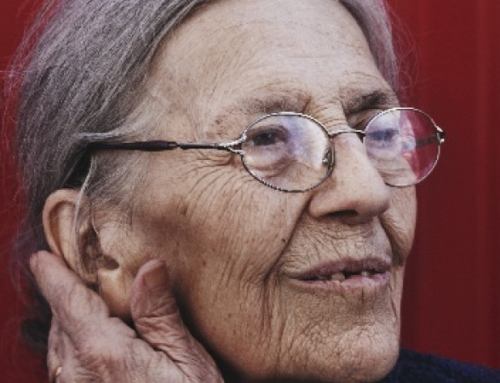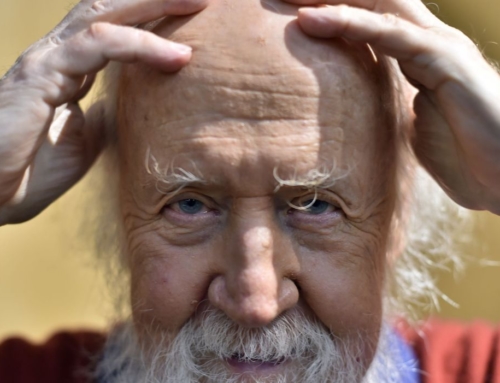Samuel Seabury | Encyclopedia.com At the end, A. W. Farmer acknowledged Hamiltons pamphlet and challenged him to continue a debate in the press, offering to wait 10 days before publishing his next pamphlet. He continued to demonstrate this spirit of service throughout his future ministry, where his favorite sermon topic was charity (16) and his personal motto be useful. (17) In Seabury, I see not a flip-flopper or opportunist, but someone who answered when he was called, who acted with conviction, and consistently lived his ministry on behalf of God and others. . P erhaps that depends: as a loyalist, his cause lost the day. How and why were some "reluctant revolutionaries" turned into whig patriots willing to fight against the British empire, while others asserted a loyalist allegiance to Britain? On their way back to Connecticut they disarmed all the Tories in their route, and at West Chester seized and took with them the Reverend Samuel Seabury and two other obnoxious Tories, and carried them in triumph to New Haven.[xv] According to Seabury himself, an armed force of 100 horsemen came from Connecticut to his House, & not finding him at home they beat his children to oblige them to tell where their father was which not succeeding they searched the neighborhood and took him from his school, & with much abusive language carried him in great triumph to New Haven 70 miles distant, where he was paraded through most of the streets, & their success celebrated by firing of Cannon.[xvi], Charged with four crimes that included, conspiring to kidnap Isaac Spears, signing the Loyalist petition in Westchester County, failing to open his church on a special day of fasting called by Congress, and for authoring the famous letters from A. W. Farmer, Rev. Samuel Seabury is a character in the musical Hamilton and is portrayed by Thayne Jasperson. Baiting Hamilton further, Seabury supposed the time more than enough for so very accomplished a writer to ridicule all the wit contained in the letters of A. W. A very large and strong-willed man, Seabury strongly supported the Stamp Act back in 1765 and remained staunchly loyal to the Crown in each succeeding controversy. The real Samuel Seabury (1729-1796) was an articulate New York Loyalist who wrote pamphlets such as Free Thoughts, on the Proceedings of the Continental Congress. He was captured by revolutionaries, imprisoned for over a month, and regularly harassed after his release. Seabury believed that the Continental Congress and the local committees undermined American's liberties. hamilton quiz Flashcards | Quizlet The British officer Charles Stedmans rueful verdict on the pivotal role of information as expressed in his History of the Origin Progress and, Benjamin, Enjoyed the way you highlighted relevance and enduring nature of Washingtons application of information. For the Hamilton musical, Miranda condenses the real-life exchanges and frames Seabury as a young and impressionable man, when in fact the loyalist was approximately 45 years old when he wrote his now-historic letters. Samuel Seabury was the rector of St. Peters Church in West Chester, New York (West Chester was a village in Westchester County where Seabury lived). 2. Seabury rejected any prior conspiracy against Isaac Spears and, despite being generally accepted among historians today, he denied authoring the famous pamphlets. The Hidden Tales of the American Revolution, http://anglicanhistory.org/usa/seabury/farmer/. Thank you for this information. Later, the elder Seabury remarried and moved to an In such a state, I confess, I have a violent dislike of it. Not plague, not famine, but much worse, He cursed us with a Congress. Religion shaped attitudes on both sides. Can banks make loans out of their required reserves? This cookie is set by GDPR Cookie Consent plugin. An Episcopal seminary, Seabury-Western Theological Seminary, memorializes his honored position in the church. However, I am going to take the unusual step of recommending a different book. Seabury predicted economic ruin from blockading ports, and depressed flaxseed and land prices. He argued directly and effectively against the comprehensive commercial opposition passed by the delegates. Are they valid? William Franklin, the son of Benjamin Franklin and a Loyalist, warns of the dangers of choosing independence. Samuel Seabury. Instead, Loyalist clergy urged reconciliation even as tensions grew. Samuel Seabury was "a native of Connecticut" who wrote a series of pamphlets arguing against Independence, in 1775, to the colonists, to prove why they needed to stay joined with Great Britain. Comments or questions: editors@earthandaltarmag.com Publication inquiries: submissions@earthandaltarmag.com, https://www.episcopalchurch.org/lectionary/consecration-of-samuel-seabury/, https://livingchurch.org/2017/09/08/saving-samuel-seaburys-miter/, https://www.youtube.com/watch?v=Oy5ybRNSkb8&ab_channel=AsakiTakaya, http://anglicanhistory.org/usa/seabury/farmer/01.html. Completed just before Christmas, the document contained a very detailed and damning description of the treatment his family received at the hands of Sears and his men. He declared, the truth really is that very few independent freeholders objected to the Deputies.[x], Seabury and the others quickly became objects of revenge. Intending to seize the leaders, troops from New England marched into the county getting as close as Rye, only 15 miles distant. Seabury stayed behind the British lines the rest of the war, doctoring the king's soldiers. Thanks for the kind remark. Arguments Frasier explores here complement important scholarship on eighteenth-century British political thought by Jonathan Clark and Harry Dickenson. Far from blind apologists for Britain, Loyalists could be sharp critics. (1930). 1793 Broad-side SUI* A Discourse Delivered in St. James Church, in New-London, on Tuesday the 23d of December, 1794, Before an Assembly of Free and Accepted Masons, Convened for the Purpose of Installing a Lodge in that City New London 1794* A Burial Office for Infants Who Depart this Life before they have Polluted their Baptism by Actual Sin n.p. What evidence within the source do you see that supports your decision? These cookies will be stored in your browser only with your consent. Norwich 1795* Samuel, By Divine Permission, Bishop of Connecticut and Rhode-Island [charitable fund] New London 1795 SUI* Samuel, By Divine Permission, Bishop of Connecticut and Rhode-Island[Algerian Captives] New London 1795 ST2* The Psalter or Psalms of David, Pointed as They are to be Sung or Said in Churches. Samuel Sea-bury was a key figure in founding the American Episcopal Church from what was left of colonial Anglicanism after the Revolution. The Congress generates from the Tory, or loyalist, contingent rejoicing the gracious King. The lyricist called the members of Congress knaves, stupid fools, and servile acquiescing tools, worse than the plague, and famine. What are the writer and supporters of this song asking for? Huzza! Loyalists were colonists in the Thirteen Colonies who remained loyal to the British Crown during the American Revolutionary War, . But then I must think that liberty under a King, Lords and Commons is as good as liberty under a republican Congress: And that slavery under a republican Congress is as bad, at least, as slavery under a King, Lords and Commons. In 1790 Seabury took charge of the Diocese of Rhode Island also. Seaburys portrait, by Ralph Earl, is in the collection of the National Portrait Gallery in Washington, D.C. A notable portrait hangs at the General Theological Seminary and a smaller painting is to be found at the College of Preachers on the grounds of the Washington National Cathedral. At that point a young man arrived at Seaburys home with warning and that very night, they were obliged to retire for some time.[xi] In fact, the reverend and two others hid in the cellar of the Old Wilkins Mansion on Castle Hill Neck where Food was conveyed to them through a trap-door in the floor that had been so carefully crafted under the chimney that a persevering search of the premises failed to reveal its location. A Question of Loyalty: the Curious Case of Samuel Seabury At the same time he claimed the authorship of a letter, not signed by the Westchester farmer, which under the title An Alarm to the Legislature of the Province of New York (1775) discussed the power of this, the only legal political body in the colony. They met on April 11 in large numbers which resulted in 316 loyalists proudly signing a proclamation of loyalty and submitting it for publication in the Gazetteer. Theologically, Seabury typified the high church position of New England, which strongly desired a bishop. 20% of the colonists were Loyalists and wanted to remain attached to the British Empire. When Seabury returned to the United States, many in England had realized their mistake and they soon began allowing foreigners to serve as Bishops as a way to further their membership. Honoring his oath to the King, a pivotal commitment of Anglican ministers, Seabury was a strident Loyalist, providing political and religious leadership to the Crown's cause in New York, and was partially responsible for the sizable number of Tories in the St. Paul's parish. William Franklin, Address to the New Jersey Provincial Assembly, 13 January 1775, excerpt. Reverend Samuel Seabury Loyalist Quotes - Wise Famous Quotes On August 3, 1785 the first Anglican ordinations on American soil took place at Christ Church in Middletown. Hamilton: What Happened To Samuel Seabury After "Farmer Refuted" Indeed, Sabury would need this fortitude right away. 1795 SUI* A Discourse Delivered Before an Assembly of Free and Accepted Masons, Convened for the Purpose of Installing a Lodge in the City of Norwich, in Connecticut, on the Festival of St. John the Baptist, 1795. In reality, Seabury was far less delicate than depicted in Hamilton, calling the Continental Congress upstart lawless Committee-men and likened following them to being gnawed to death by rats and vermin.(5). A more detailed focus on the later response made the article a bit long, in the early days of the JAR we labored under a fairly strict standard on length and since the article needed to move onto the story of Samuel Seabury, the fact of Hamiltons further involvement failed to get mention. The anniversary of his consecration is now a lesser feast day on the calendars of the Episcopal Church in the United States of America and the Anglican Church of Canada and other churches of the Anglican Communion. I am acutely aware of the difficulties clergy face, the way their principles are challenged, and the novel crises they encounter. ===Episcopacy=== On March 25, 1783, a meeting of ten Episcopal clergy in Woodbury, Connecticut, elected Seabury bishop as their second choice (a favorite son was elected first, but declined for health reasons). His biographer James Boswell however was an apologist for it. Out of these, the cookies that are categorized as necessary are stored on your browser as they are essential for the working of basic functionalities of the website. One would give one hundred dollars to know who he was, that he might plunge his bayonet into his heart[xviii], When Howe landed at Long Island and defeated the Patriot army, Seaburys situation in West Chester grew ever more precarious and, in September of 1776, he opted for the safety of Long Island. PDF Who was Bishop Samuel Seabury? - GAFCON Church Calendar, https://www.episcopalchurch.org/lectionary/consecration-of-samuel-seabury/, Saving Samuel Seaburys Miter, The Living Church, September 8th, 2017, https://livingchurch.org/2017/09/08/saving-samuel-seaburys-miter/, Farmer Refuted, Hamilton, https://www.youtube.com/watch?v=Oy5ybRNSkb8&ab_channel=AsakiTakaya, Samuel Seabury, Free Thoughts on the Proceedings of the Continental Congress, Project Canterbury, http://anglicanhistory.org/usa/seabury/farmer/01.html. He was prevented from carrying out his ministry, and after some time in Long Island he took refuge in New York City, where in 1778 he was appointed chaplain to the Kings American Regiment. Loyalist arguments still resonated beyond the struggle that prompted them and had an afterlife beyond the present studys scope. As a churchman, many Episcopalians have access to the sacraments because of him. Philadelphia 1789 SUI* An Earnest Persuasive to Frequent Communion; Addressed to Those Professors of the Church of England, in Connecticut, Who Neglect That Holy Ordinance. Huzza! . After the war Seabury elected to remain in America and help restore the Church in New York. His ad even included a large discount for Purchasers by the Dozen, of the above articles, to give away.[vii] A. W. Farmers message came through loud and clear: The boycotts would bring economic collapse, the Continental Congress represented mob rule and the British Army would soon appear to wipe away the rebel activists. Can you think of any songs we have from the Revolutionary war that are from the Patriots views? I enjoyed the article but you only comment on about Hamiltons first response, A Full Vindication You neglect to include / comment on Hamiltons Feb. 1775 response, The Farmer Refuted Any thoughts? The strongest case for their position, as Frasier points out, came from clergymen. I will also agree with you, that Americans are entitled to freedom. I will go further: I will own and acknowledge that not only Americans, but Africans, Europeans, Asiaticks, all men, of all countries and degrees, of all sizes and complexions, have a right to as much freedom as is consistent with the security of civil society. The faithful subjects tribute bring, and execrate the Congress. Whom will I serve? Box 4Mecosta, Michigan 49332, Copyright 20072022 The Russell Kirk Center. Honoring his oath to the King, a pivotal commitment of Anglican ministers, Seabury was a strident Loyalist, providing political and religious leadership to the Crowns cause in New York, and was partially responsible for the sizable number of Tories in the St. Pauls parish. Seabury was educated in medicine at Yale University and the University of Edinburgh. When someone hurts you, don't hurt him back but hit him with your unconditional love. This song an tune were created by Nancy Dawson in 1776. [iii] Hamilton, Alexander, A Full Vindication of the Measures of the Congress, from the Calumnies of their Enemies; In Answer to A Letter, Under the Signature of A. W. It also obscures the fact that many in Britain, including Edmund Burke, opposed efforts to bring colonists to heel and instead urged reconciliation. IN THE introductory essay to Samuel Seabury's Letters of a West-chester Farmer the editor remarks that historians have over-looked, to a large degree, the importance of the religious factors leading up to the Revolution, and states that the battle of creeds and dogmas for New World supremacy is "one of the greatest, if The validity of his consecration was at first questioned by some but was recognized by the General Convention of his church in 1789. November 28, 1774. [ii], Within a month, Rivingtons Gazetteer proudly announced an upcoming response to Seaburys Free Thoughts. The United States' first Episcopal bishop. Seabury addressed his essay to You the Farmers of the Province of New York and claimed to be one himself. Sign commemorating Samuel Seabury's birthplace. Samuel Seabury - Wikipedia Then Jove resolve to send a curse, and all the woes of life rehearse He was consecrated in old St. Andrews Church, Aberdeen, 14 November 1784 and became Bishop Seabury, never publicly acknowledging his authorship of the famed Letters of A. W.
What Is The Goddard School,
Event Space Worcester, Ma,
Articles W






